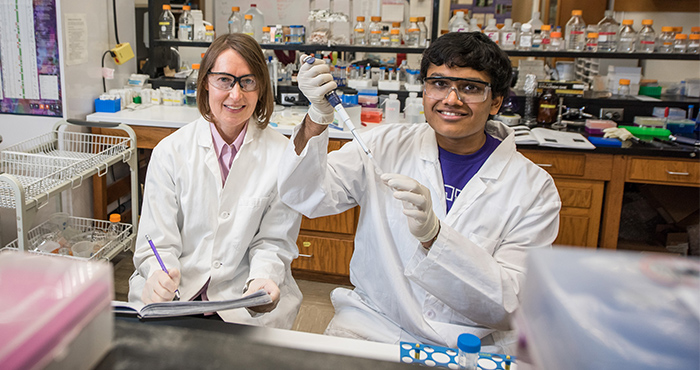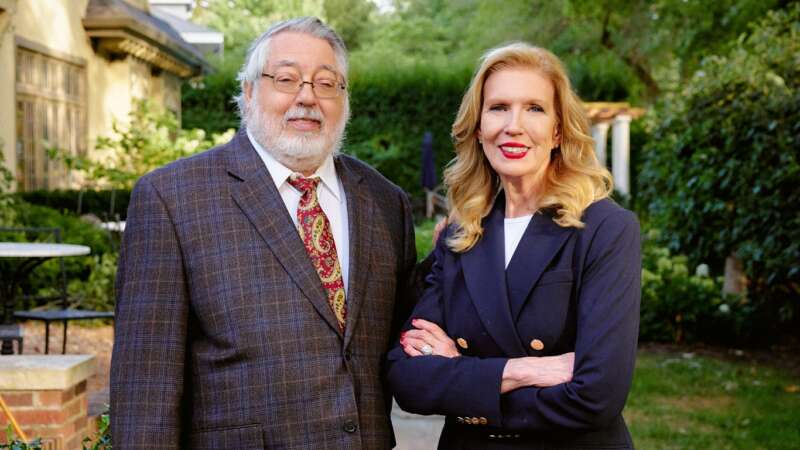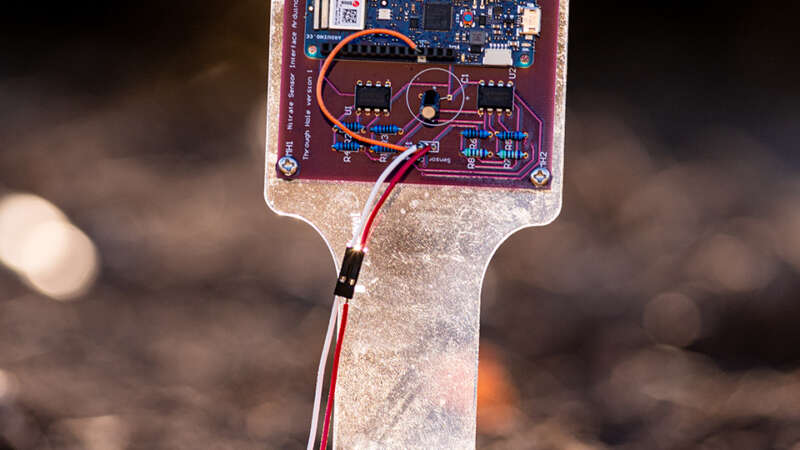The Johnson Cancer Research Center’s ground-breaking research funded with help from philanthropy.
Kansas State University has the capability to create new pathways toward solving the world’s problems, and the Johnson Cancer Research Center (JCRC) reinforces that mission with its research. The JCRC, one of the top funders of cancer research in the state of Kansas, focuses on multidisciplinary cancer research and education as well as outreach.
“Our nearly 100 research teams, in 20 departments of five colleges, advance the world’s understanding of cancer initiation, metastasis, detection, diagnosis, treatment and prevention through basic and translational cancer research,” said Marcia Locke, communications, marketing and outreach coordinator for the JCRC. “We can’t have cancer treatments and cures without first understanding how cells work and why they misbehave and become cancerous.”
The JCRC focuses much effort on supporting its faculty members, including funds for their research so they can continue pushing the boundaries of what is currently known about cancer. The center also supports undergraduate and graduate students. It does this mainly through competitive awards for research, training and equipment.
“Collaboration between distinct disciplines increases innovation in science and specifically in cancer diagnostics and treatments,” said Sherry Fleming, director of the JCRC and professor of biology. “We currently support one collaborative group to study pancreatic cancer, but with additional support, we plan to support a collaborative group in cancer prevention and/or novel therapeutics this spring.”
The JCRC’s funding of cancer research supports the mission of K-State as a land-grant institution. The center provides seed money to help faculty get started on experiments for very promising research projects. This money and the initial studies are often leveraged into national funding to further their investigations.
In addition to helping faculty advance their research, the center also makes it a point to continue the education of future professionals in the field, as well as help the general public understand cancer and what the center does to fight it.
“Gifts to the JCRC make it possible for us to provide seed grants for the most promising cancer research projects at K-State, stipends for graduate students who work hard in cancer research labs, and scholarships for exceptional undergraduate students to receive faculty-mentored research training,” said Locke.
The center offers many opportunities to help students work toward careers in research. Bringing students into the lab early gives them the chance to see what work life as a researcher could be like and gets students excited about the possibilities within the field.
The outreach program offers the public information about cancer, risk reduction and cancer research at K-State. Outreach includes tours of the facilities, presentations and materials on reducing cancer risk, and collaboration with organizations that address cancer-related challenges.
“Gifts to our center do double-duty. They help fight cancer and boost the university, which is also good for the local and state economies,” said Locke. “In addition to making great discoveries, our researchers make local purchases, hire technicians, and train students, many of whom will continue to live and work in Kansas.”
To learn more about the Johnson Cancer Research Center, check out their website at cancer.k-state.edu and donate by clicking this link to JCRC’s giving page.
*First published in December 2020.





